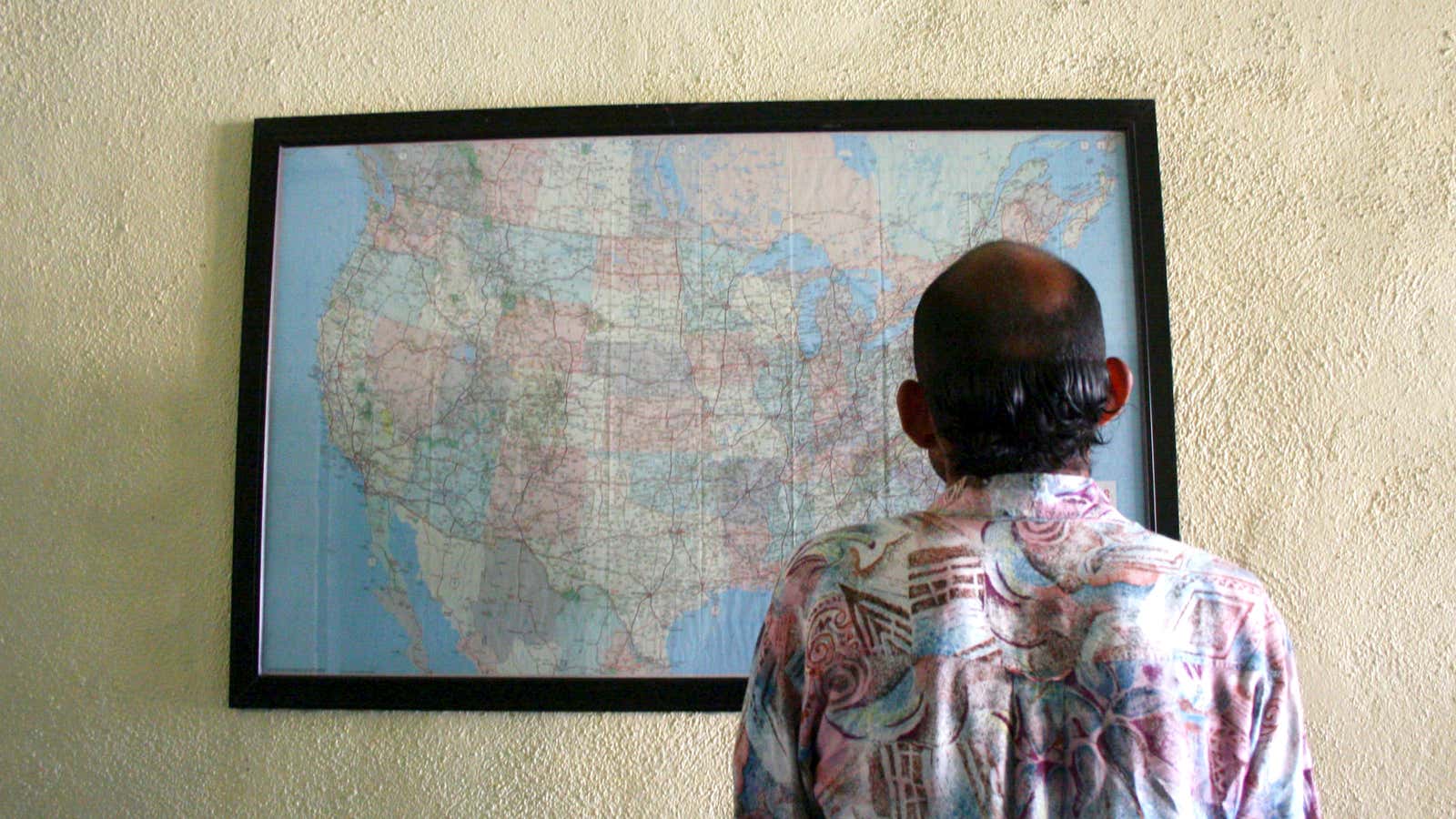People who move to wealthier countries surely expect that migration will lead them to a better life—but new research suggests that economic migrants are unlikely to achieve greater happiness in their adopted country. Migration to a wealthier country often results in a lower economic status for the migrants (even if it increases their spending power)—and status is what matters in economic terms for happiness.
The research compared migrants moving to western European countries to people remaining in eastern European countries the migrants had left (“stayers”). On average, migrants were happier than stayers—but the analysis (using data on 42,000 people from the European Social Survey) indicated that the migrants were already happier even prior to their migration. The difference, then, did not represent an increase in happiness following from migration.
Migrants’ experiences differed depending on where they lived prior to migration. People who left Romania and Russia tended to gain happiness after migration, an outcome no doubt connected to the fact that average happiness in those countries is quite low. But happiness in Poland is already on par with levels common in western Europe—and Polish migrants to the west experienced a significant decrease in happiness. For migrants from other countries happiness levels remained unchanged.
The study’s main findings are in line with the work of leading happiness researcher Richard Easterlin. A well-known idea (often labelled the “Easterlin paradox”) indicates that people who earn more are happier than people who earn less, but gaining an increased income does not lead to lasting increases in one’s happiness.
In economic terms, what matters for happiness is the way one compares oneself to others. If one’s income rises in line with the incomes of others, relative position does not change, and so happiness remains unchanged as well. Even when income rises significantly, leading to upward mobility, people often adjust their reference groups, comparing to others at a higher level rather than deriving satisfaction from comparing themselves to a stable reference group.
The difficulty for migrants in these terms is that the jobs they are able to get in the destination country often have a lower status than the jobs they enjoyed in their country of origin. Migrants are often educated and ambitious, but their qualifications might not be recognized in the destination; they can also encounter prejudice and discrimination by natives. Even so, the wages they earn in the wealthier country might seem attractive compared to those in the origin country. After arrival, though, they will start to compare themselves to natives in the destination rather than to stayers in the origin. A decline in status might then feed a sense of frustration, of aspirations that cannot be satisfied.
The dynamic described by Easterlin might suggest that reversing the usual logic of economic migration could lead to a happier outcome: people who move from a wealthier country to a poorer one could achieve a higher relative position (even if they lose spending power in an absolute sense). Additional research in progress, however, indicates that migrants moving from wealthier northern European countries to destinations such as Spain and Cyprus are less happy than the stayers in the northern countries.
International migration typically involves significant upheaval in one’s life. Even in the case of “north to south” migration, any economic gains in relative terms leading to increased happiness might nonetheless be outweighed by negatives in other factors such as relationships. When moving to a wealthier country in hopes of an increased income, on the other hand, the happiness benefits in economic terms are likely equivocal at best, in ways the migrants have a hard time predicting.
Some migrants embark on migration not for their own happiness but instead to meet the needs of family members via remittances. Even in such instances, however, one would want to know whether the happiness benefits of the remittances (and the expenditures they enable) outweigh the drawbacks associated with family separation. Research by others on that question gives mixed results with no clear answer.
Does happiness really matter in this context? Undoubtedly it is not the only thing that matters. But once people’s basic needs are secured then the happiness consequences of the choices they make (such as migration) are surely important, not least to them. One might make sacrifices now for benefits later (as with education, perhaps)—but a “benefit” that people don’t experience as such might be of dubious value.
One implication of these findings is that worries about immigration in wealthy destination countries have even less foundation than is commonly perceived. Some people have exaggerated hopes about the economic benefits of migration to a wealthier country (though migration is often motivated by non-economic factors as well).
But those people with a more sophisticated appreciation of the risks and drawbacks? Maybe they’ll just be content to stay where they are.
This article originally appeared on The Conversation. We welcome your ideas at ideas@qz.com.
